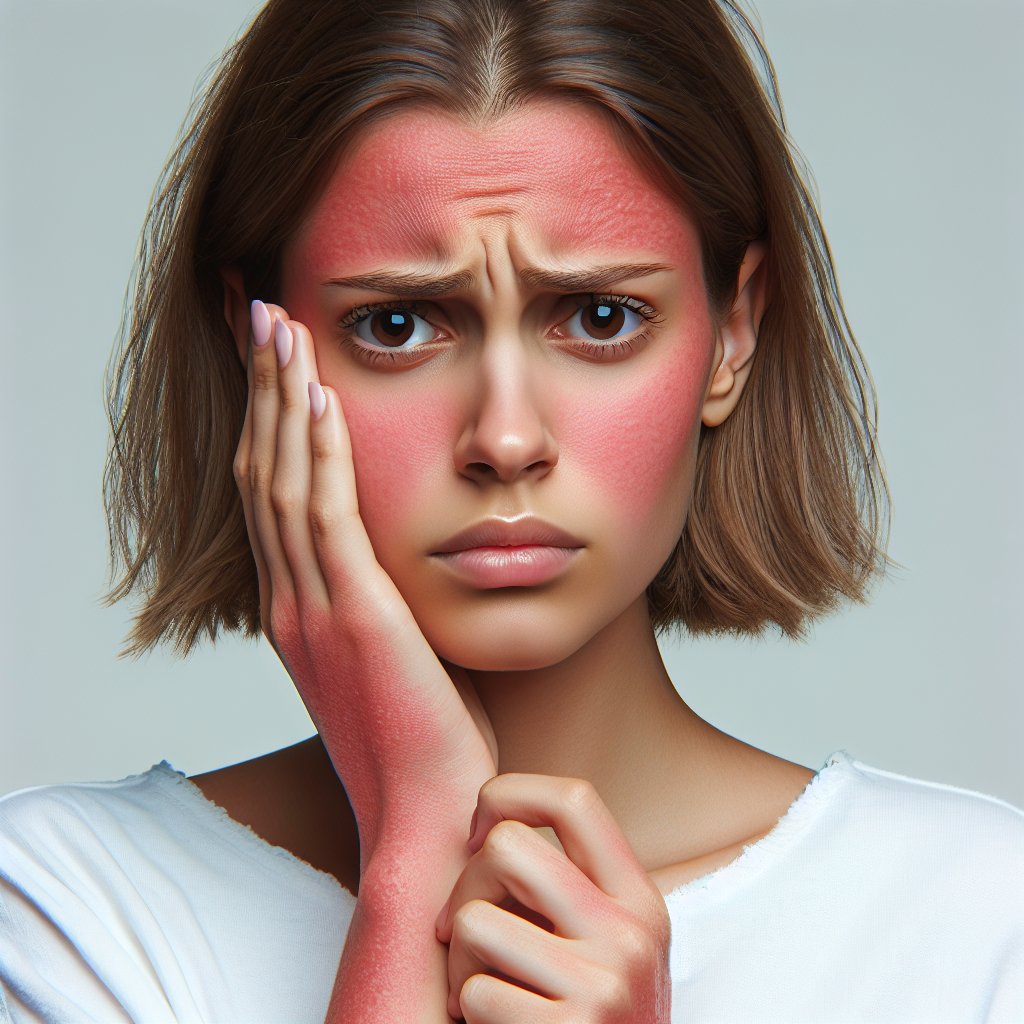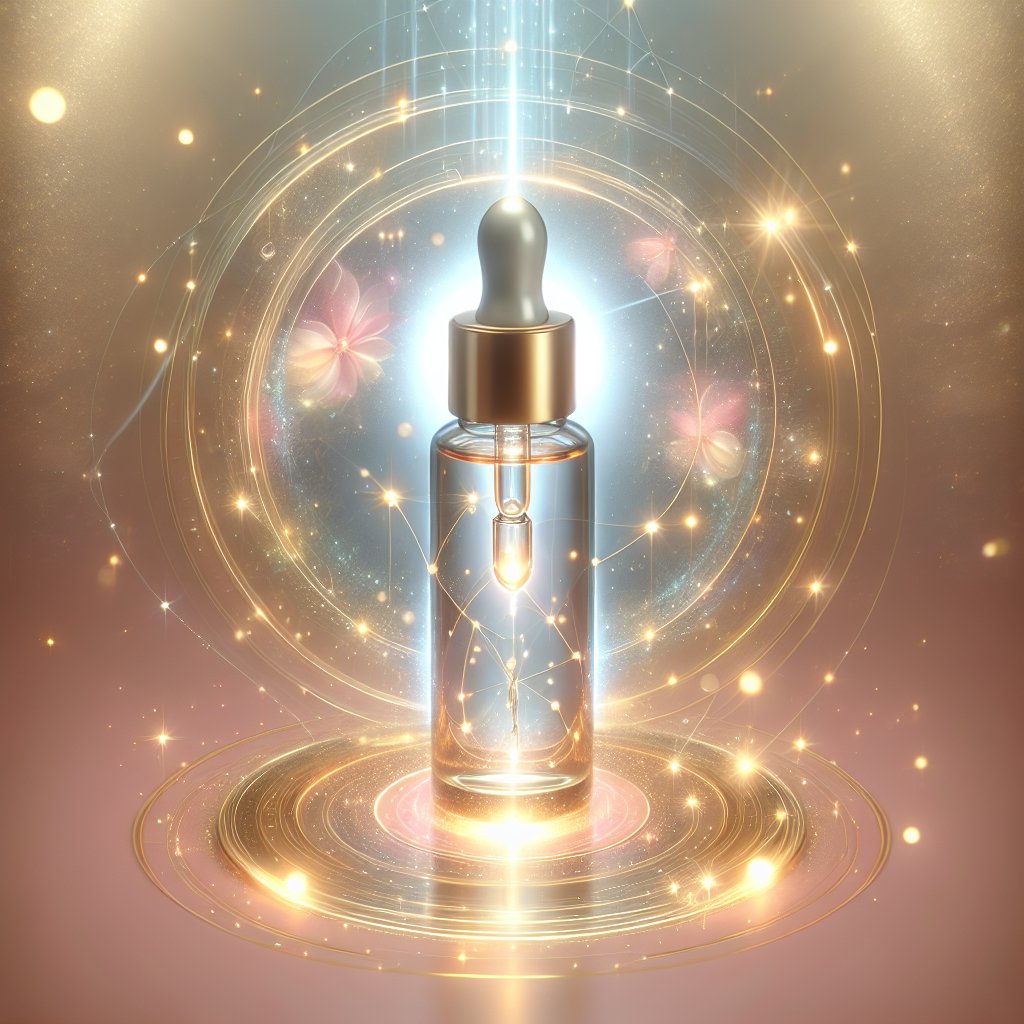Are You Allergic to Vitamin C? Recognizing and Treating Allergic Reactions on Your Face
Are You Allergic to Vitamin C? Recognizing and Treating Allergic Reactions on Your Face
Welcome to our in-depth guide to understanding and managing allergic reactions to Vitamin C on the face! As more and more of us embrace the benefits of Vitamin C for our skin, it’s crucial to be aware that, for some individuals, it can trigger allergic reactions. In this article, we will delve into the symptoms, causes, and effective treatments for allergic reactions to Vitamin C on the face. So, if you’ve been experiencing unexplained skin issues, this could be just the guide you need.
Before we dive into the nitty-gritty, let’s explore why understanding and recognizing allergic reactions to Vitamin C is so important for your skincare routine. With the popularity of Vitamin C serums and products, it’s crucial to be able to differentiate between an expected tingling sensation upon application and a genuine allergic reaction. By gaining a comprehensive understanding, you can make informed choices to protect and nourish your skin.

Symptoms of Allergic Reaction to Vitamin C on Face
If you suspect you may be experiencing an allergic reaction to vitamin C on your face, it’s essential to be aware of the common symptoms that may occur. These symptoms include redness, itching, swelling, and hives.
Redness is often one of the first signs that something may be amiss. Your skin may appear more flushed than usual, and you may notice an increased warmth and sensitivity in the affected areas. Itching can also be prevalent, leading to a strong urge to scratch the affected skin. This itching can range from mild to severe and may be accompanied by a burning or stinging sensation.
Swelling is another common symptom of an allergic reaction to vitamin C on the face. This can manifest as puffiness in the cheeks, eyelids, or lips, and in more severe cases, the entire face may become swollen. Additionally, hives, which are raised, itchy welts on the skin, can also develop. These can vary in size and may merge together to form larger areas of raised, inflamed skin.
If you experience any of these symptoms after using a vitamin C product on your face, it’s crucial to discontinue use immediately and seek medical advice. Allergic reactions can vary in severity, and it’s essential to receive proper care and guidance from a healthcare professional to manage the symptoms effectively.
Remember, everyone’s skin and body chemistry are different, so what works for one person may not work for another. If you suspect you’re having an allergic reaction to vitamin C, don’t hesitate to reach out for help and make note of the specific product or products you’ve been using.
Causes of Allergic Reactions to Vitamin C on Face
While Vitamin C is generally well-tolerated and highly beneficial for our health, some individuals may experience allergic reactions when applying it to their face. It’s essential to understand why this happens and how to recognize the symptoms. Let’s delve into some of the reasons behind allergic reactions to Vitamin C on the face.
Sensitive Skin Types
One of the primary reasons for allergic reactions to Vitamin C on the face is having sensitive skin. According to a study published in the Journal of Clinical and Aesthetic Dermatology, individuals with sensitive skin are more prone to developing adverse reactions to skincare products, including those containing Vitamin C. If you have a history of sensitive skin or allergic reactions to other skincare ingredients, it’s crucial to perform a patch test before using Vitamin C products on your face.
Ingredient Sensitivities
Another factor to consider is the presence of additional ingredients in Vitamin C skincare products. For instance, some facial serums and creams may contain preservatives, fragrances, or other active ingredients that could trigger an allergic response. Research published in the Clinics in Dermatology journal suggests that certain preservatives and fragrances commonly found in skincare products can cause contact dermatitis and other allergic skin reactions, especially in individuals with sensitive skin.
Concentration and Form of Vitamin C
The concentration and form of Vitamin C used in skincare products can also contribute to allergic reactions on the face. According to a study in the Indian Dermatology Online Journal, higher concentrations of Vitamin C or certain forms of the vitamin, such as L-ascorbic acid, may irritate the skin and lead to allergic manifestations in some individuals. It’s important to start with lower concentrations and consider alternative forms of Vitamin C, such as sodium ascorbyl phosphate or magnesium ascorbyl phosphate, if you experience sensitivity.
Understanding these potential causes of allergic reactions to Vitamin C on the face can help you make informed decisions about the skincare products you use. In the next section, we’ll explore the common symptoms of allergic reactions to Vitamin C on the face and how to differentiate them from other skincare issues.

Diagnosis of Allergic Reactions to Vitamin C on Face
So, you suspect that you might be experiencing an allergic reaction to vitamin C on your face. What now? Well, finding out if you really are allergic is the first step, and that requires a visit to a healthcare professional. Let’s dive into how healthcare professionals diagnose allergic reactions to vitamin C on the face.
Symptoms Assessment
When you visit a healthcare professional with concerns about an allergic reaction to vitamin C on your face, they will begin by conducting a thorough symptoms assessment. Allergic reactions to vitamin C on the face can manifest in various ways, including redness, swelling, itching, and even a rash. By discussing your symptoms in detail, the healthcare professional can start to narrow down the potential causes and form a preliminary diagnosis.
Skin Patch Testing
One of the most common methods used to diagnose allergic reactions to substances like vitamin C is skin patch testing. This involves applying small amounts of the suspected allergen, in this case, vitamin C, to patches on your skin. These patches are then monitored for several days to see if a reaction occurs. If redness, swelling, or irritation develops specifically in the area where the vitamin C was applied, it could indicate an allergic reaction.
It’s important to note that patch testing should only be performed by a qualified healthcare professional in a controlled environment. Attempting to conduct this type of testing at home can be dangerous and is not recommended.
Intradermal Testing
In some cases, healthcare professionals may also use intradermal testing to diagnose allergic reactions to vitamin C on the face. This involves injecting a small amount of the allergen solution into the skin to observe the body’s reaction. While this method can be more sensitive than skin patch testing, it is also more invasive and carries a slightly higher risk of causing a reaction during the testing process.
Throughout the diagnostic process, it’s essential to be open and honest with your healthcare professional about any skincare products, dietary supplements, or medications you are using, including vitamin C-based products. This information can help them make an accurate diagnosis and provide you with the best possible care and treatment options.
Remember, self-diagnosis of allergic reactions to vitamin C on the face can be risky and may lead to unnecessary anxiety or incorrect assumptions. Trust in the expertise of healthcare professionals to guide you through the diagnosis and treatment process.
Next, let’s explore the various treatment options for allergic reactions to vitamin C on the face and how you can manage these symptoms effectively.
Treatment for Allergic Reactions to Vitamin C on Face
Dealing with an allergic reaction on your face can be challenging, but there are steps you can take to manage and treat it effectively.
1. Identify the Symptoms
If you suspect you are experiencing an allergic reaction to Vitamin C on your face, be on the lookout for symptoms such as redness, itching, swelling, hives, or a rash. These symptoms usually manifest within a few minutes to a few hours after exposure to the allergen.
2. Discontinue Use
The first and most crucial step is to discontinue using the Vitamin C product immediately. This includes serums, creams, or lotions that you suspect may be causing the reaction. Ceasing use will prevent further irritation and allow the skin to start healing.
3. Wash the Face
Gently cleanse your face with a mild, fragrance-free cleanser and tepid water to remove any remnants of the Vitamin C product. This helps to soothe the skin and reduces the allergen’s contact with the affected area.
4. Apply Cold Compress
To alleviate any discomfort, applying a cold compress can help reduce redness and swelling. A clean washcloth soaked in cold water or an ice pack wrapped in a cloth can be gently applied to the affected area for 15-20 minutes at a time.
5. Seek Medical Advice
If the allergic reaction on your face is severe or not subsiding, it’s essential to seek medical attention promptly. A healthcare professional can provide expert guidance and may prescribe antihistamines or topical corticosteroids to alleviate the symptoms and promote healing.
Remember, everyone’s skin is unique, and what works for one person may not work for another. It’s always best to consult with a dermatologist or allergist to determine the best course of action for your specific situation.
Managing and treating allergic reactions to Vitamin C on the face involves being proactive and attentive to your skin’s needs. By taking the appropriate steps, you can effectively address the reaction and prevent it from reoccurring in the future.

Prevention of Allergic Reactions to Vitamin C on Face
So, you’ve finally discovered the wonders of Vitamin C for your skincare routine. You’ve read about its brightening, antioxidant, and anti-aging properties, and you can’t wait to incorporate it into your daily regimen. However, as with any new product, there’s always the possibility of an allergic reaction, especially when it comes to delicate facial skin. Here are some tips to help prevent allergic reactions to Vitamin C on your face:
Patch Test
Before applying any Vitamin C product to your face, it’s crucial to conduct a patch test. Choose a small, discreet area on your skin, like the inside of your wrist or behind your ear. Apply a small amount of the product and wait 24 hours to see if any redness, itching, or irritation develops. This simple step can help you avoid a full-blown allergic reaction on your face.
Check Ingredient Lists
When selecting a Vitamin C product, carefully scrutinize the ingredient list. Look for pure forms of Vitamin C, such as ascorbic acid, and try to avoid products with added fragrances, preservatives, or other potentially irritating additives. Opting for products with minimal ingredients can reduce the risk of an allergic reaction.
Start Slowly
If you’re new to using Vitamin C on your face, ease into it. Begin with a lower concentration and gradually increase the frequency and amount as your skin becomes accustomed to it. This approach allows your skin to acclimate to the product, reducing the likelihood of an adverse reaction.
Choose the Right Product Type
Vitamin C is available in various forms, including serums, creams, and powders. Depending on your skin type and sensitivity, certain product types may be better suited for you. For example, those with sensitive skin might find a Vitamin C cream or lotion to be less irritating than a potent serum.
Consult a Dermatologist
If you have a history of sensitive skin or allergies, it’s wise to consult a dermatologist before incorporating Vitamin C into your skincare routine. They can provide personalized advice based on your skin type, medical history, and potential allergens to ensure a safe and effective experience with Vitamin C.
By implementing these preventive measures, you can enjoy the numerous benefits of Vitamin C without the worry of allergic reactions on your face. Remember, the key is to listen to your skin and introduce new products gradually and thoughtfully.
When to Seek Medical Help
If you have been experiencing allergic reactions to Vitamin C on your face, it’s essential to know when to seek medical help. While mild symptoms such as slight redness or itchiness can sometimes be managed at home, more severe reactions require immediate medical attention. Here are some guidelines to help you determine when it’s time to consult a healthcare provider.
Mild Symptoms
If you notice mild symptoms like a slight tingling sensation, mild redness, or itchiness on your face after using Vitamin C products, it’s advisable to monitor the symptoms closely. In these cases, you can start by discontinuing the use of the product and gently washing your face with a mild cleanser to remove any remaining residue. You can also apply a cold compress to soothe the affected area. Most mild symptoms tend to subside within a day or two.
Moderate to Severe Symptoms
However, if the symptoms persist or worsen, it’s crucial to seek medical help promptly. Moderate to severe allergic reactions to Vitamin C on the face can manifest as intense redness, swelling, hives, or even blistering. In such cases, do not hesitate to contact a healthcare professional. Delaying medical attention can exacerbate the symptoms and lead to prolonged discomfort.
Difficulty Breathing or Swallowing
Moreover, if you experience any difficulty in breathing, shortness of breath, or swelling of the tongue or throat after using Vitamin C products on your face, it’s a medical emergency. These symptoms could indicate a severe allergic reaction known as anaphylaxis, which requires immediate intervention. Call emergency services or visit the nearest emergency room without delay. Anaphylaxis can be life-threatening and should be addressed by trained medical professionals as soon as possible.
Chronic or Recurrent Symptoms
If you have a history of chronic or recurrent allergic reactions to Vitamin C on your face, it’s advisable to consult an allergist or dermatologist. These specialists can conduct comprehensive allergy testing to identify specific triggers and provide personalized treatment plans to manage your condition effectively.
Remember, your health and well-being should always come first. If you are unsure about the severity of your symptoms or need guidance, don’t hesitate to reach out to a healthcare provider for expert advice and care.
Conclusion
Now that we’ve explored the potential allergic reactions to vitamin C on your face, it’s clear that while vitamin C is an essential nutrient for skin health, it can also lead to adverse reactions in some individuals. If you’ve experienced any of the symptoms we discussed – such as redness, itching, swelling, or a rash after using a vitamin C product – it’s crucial to seek medical advice promptly.
Remember, allergic reactions can vary from person to person, and it’s essential not to ignore any signs that your body may be reacting negatively to a product. Even if you’ve used vitamin C products before without any issues, allergies can develop over time, so it’s essential to stay vigilant.
When to Seek Medical Advice
If you experience a mild reaction, such as slight redness or itching, it may be sufficient to discontinue the product and monitor your symptoms. However, if you develop more severe symptoms like widespread rash, swelling, or difficulty breathing, seek medical attention immediately. It’s also important to consult a healthcare professional if you have a history of allergies, as you may be more susceptible to allergic reactions to vitamin C.
The Importance of Professional Guidance
Seeking medical advice is critical not only for accurate diagnosis but also for determining the best course of action. A healthcare provider can help identify the specific ingredient or compound causing the reaction and provide appropriate treatment recommendations. Furthermore, they can offer alternative skincare options or vitamin C formulations that are less likely to cause an allergic response.
Ultimately, the goal is to maintain healthy and radiant skin while ensuring your wellbeing. By being proactive and seeking medical advice when necessary, you can navigate any potential challenges related to allergic reactions to vitamin C on your face effectively and safely.


